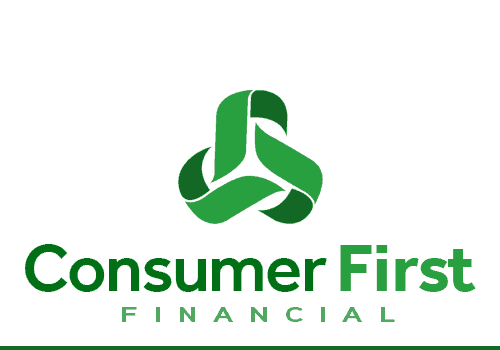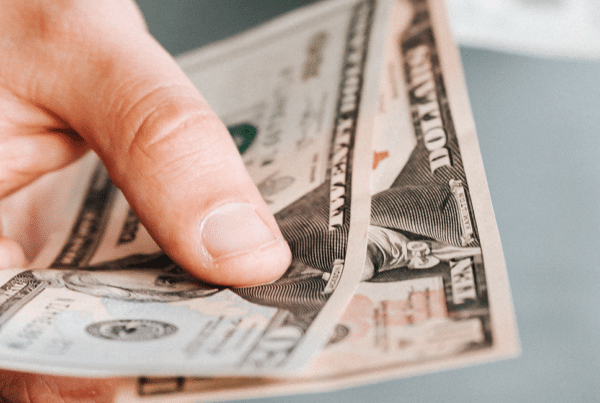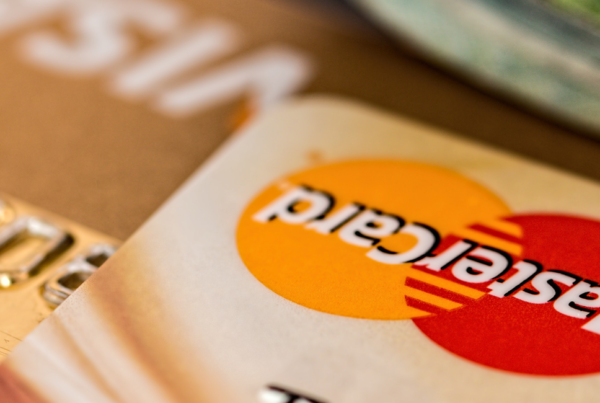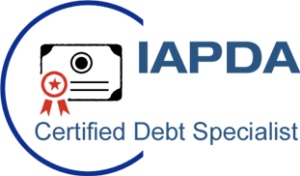
How do you know when your credit card debt is out of control?
Some consumers consider their credit cards disposable income. In other cases, we put our basic necessities on credit cards just to get by. There’s a variety of reasons why we find ourselves stuck in high interest debt. All of which contribute to the current average of about $6,000 in credit card debt per U.S. household. This makes it painfully obvious American’s need ways to get their credit card debt under control.
The inherent problem with credit card debt is the high interest. These high rates make it very difficult to pay off this type of debt; this is especially if you’re only making the minimum payment. Creditors make the most money when you only make the minimum payment. This prolongs your debt repayment time, and adds massive amounts of interest.
If you find yourself only able to make the minimum payments on your credit cards, it’s time to get things under control. Before it gets too bad, take steps to control your debt.
Here’s 7 to get you started.
Shut down your spending – Seriously, shut it down. If you are on the verge of losing control of your debt, you simply can’t afford to take on any new debt. Because interest is so high on credit cards, the higher your balances go, the harder it becomes to pay them off. If you continue spending while trying to regain control, you’ll find it near impossible to make a dent in your current debt.
Use a credit card repayment calculator to help you figure out the best way to pay off your debt and get an idea of when you’ll finally be done paying off your credit cards. We highly recommend this one.
Get out the scissors – And cut up your credit cards. This may seem drastic, but some people simply can’t stop themselves from spending if the plastic temptation is mere inches away. If this is the case for you, cut them up. Future you will thank you.
Determine where you stand – Get a clear picture of your debt. Pull your statements, and your credit report if needed. This can be done for free once a year and every consumer should take advantage of that. Make a spreadsheet with all of your debt, and the interest rates if possible. This will give you a full understanding of your debt situation.
Make a plan – Now that you know your debt, you can determine how much you can afford to pay towards it every month. Look at your expenses and your income and try to determine a comfortable amount of money to allocate to repaying your debt. Keeping this amount within your means is important.
Extra money? Not for a while – While you’re digging yourself out of credit card debt, it’s important to curb your cash spending too. Yes, this means skipping some nights out, or not visiting your favorite store. Your focus should be on paying your bills and necessities while you pay down your debt.
Don’t try to tackle them all at once – If you distribute your debt payments across all your debts, you likely won’t be making a huge impact on the principals. Choose a credit card to focus on first. Maintain your minimum payments on the others, and all extra cash towards the principal of the one you choose. Paying off your cards one at a time is much easier than trying to pay them all at once.
You can also choose how to pay them off. Many people will choose the highest interest debts first. Others prefer to focus on the lowest balance first. However you choose to pay off the debt, consistency is key.
Talk to your creditor – You can always call your creditor and simply ask for a review of your interest rate. Often times a history of on-time payments and good standing will buy some leverage in the discussion. After all, the last thing your creditor wants is for you to default.
So, maybe just not use credit cards?
You certainly can stop using high interest credit if possible. This type of debt is the hardest to pay off. With that said, using credit cards wisely has tremendous advantages. It improves and maintains our credit score and enhances our buying power, amongst other things. The key to owning credit cards is using them correctly.
Pay off your balances in full every month. This allows you to build credit, but never face high interest charges. Clearing your balance each month is the best way to stay out from under debt. Try dedicating a credit card to gas, or food for the month, then paying it off. This controlled usage of credit keeps you in the credit environment, but out of debt.
We specialize in helping everyday consumers conquer their credit card debt. If y0ur debt has become overwhelming, we can probably help.
Your partner in debt relief,
Consumer First Financial





